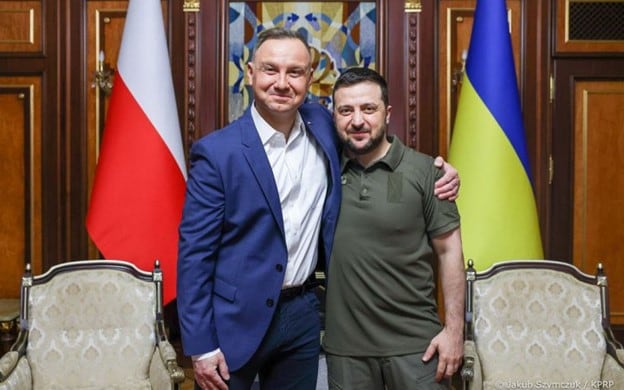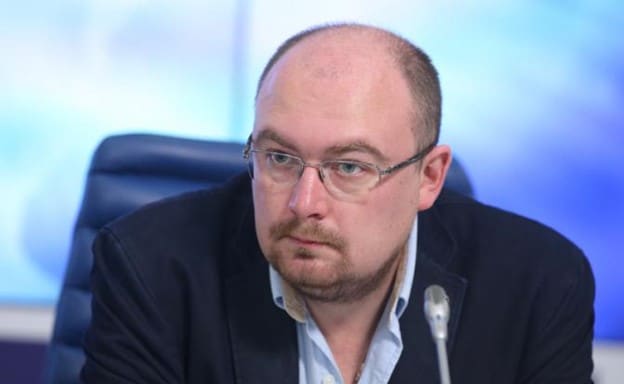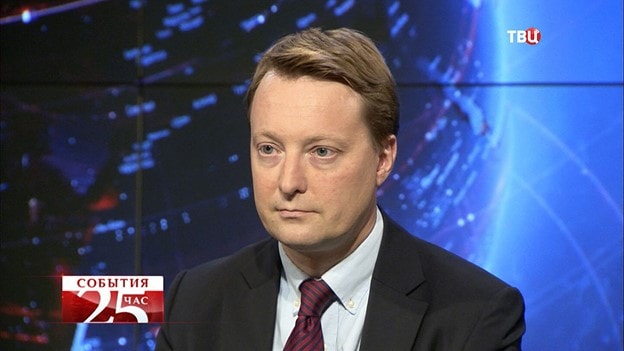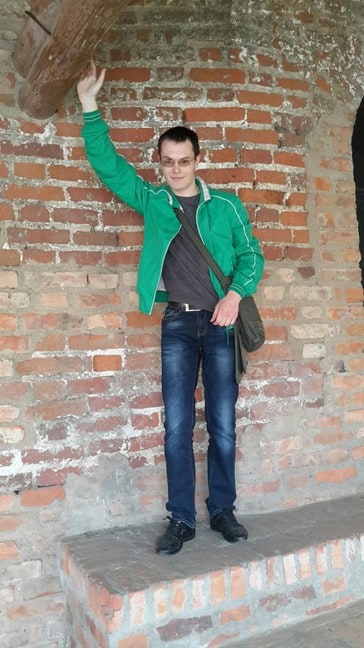Polish President Andrzej Duda arrived in Kyiv on May 22 for his third visit to the Ukrainian capital since the start of Russia's "Special Operation" against Ukraine. He became the first head of state to address Ukraine’s parliament. Duda received a standing ovation as befitting a country that has welcomed millions of Ukrainian refugees awarding them employment rights and social benefits. Poland has also served as a staging post for Western arms and assistance to Ukraine. As a token of reciprocity Ukraine's President Volodymyr Zelensky announced that Polish citizens in Ukraine would enjoy the same rights extended to Ukrainians in Poland.[1]
The visit and the rights extended Polish citizens caught the eye of Russian commentators. Many continued the traditional Russian historical approach, where Poland is viewed as Ukraine's historical enemy that constantly sought to exploit its neighbor. In this narrative, Volodymyr Zelensky again proved his unworthiness as a leader, by a willingness to surrender his country's vital interests and accept Polish domination. In doing so, he was repudiating the memory of Ukrainian heroes who had fought Poland and drawn Ukraine towards Russia.
However, a counter narrative emerged in the Russian press in which it was the Ukrainians who were manipulating Poland rather than the other way around. According to this interpretation the Poles were bending over backwards to accommodate the Ukrainians purely out of a desire to weaken Russia and eject it from Europe. Poland's self-abnegation would go unrewarded; Russia would reclaim its parts of Ukraine, while Poland would be left out in the cold.
Another analytical direction claimed that the new special relationship was dictated by the current circumstances.
MEMRI's report on how Russia views relations between Poland and Ukraine follows below:

Duda and Zelensky at the Rada (Source: En.lib.ua)
Zakharova: De Facto Legalization Of The Polish Seizure Of Ukraine
The Russian Foreign Ministry's official spokesperson, Maria Zakharova, said that Kyiv, in confirming special rights for Polish citizens, transfers to them rights to its territories, thereby de facto legalizing the seizure of Ukraine.[2]
The Russian orientalist and political analyst, Yevgeniy Satanovskiy commented on Zelensky's announcement about the imminent passage of the bill extending special legal status to Polish citizens on Ukrainian territory and called it a reversal of his history.
Bogdan Khmelnitsky, had swayed the Rada in 1654 in favor of Russia, effectively parting with Poland. And now Zelensky "will reverse history. And once again Ukraine will be a part of Poland."
Satanovsky believes that Zelensky is "starting a grand partition of his country, and the Europeans will properly formalize this endeavor bureaucratically.”
This will be presented in a global media campaign as a salvage attempt in that that Poland and Ukraine (referring, naturally, to the Kyiv’s current regime) are trying to save (...) at least part of the country, which their [American] bosses have agreed to."[3]
Analyst Alexander Nosovich believes that the only meaning of the proposed Ukrainian law is to allow the Poles to access Ukrainian state secrets, occupy senior positions in strategic industries, serve in the army and special services.
In his opinion, the sequence of events shows that Warsaw was allowed to govern Ukraine, because the curators in the United States realized that the most important eastern territories within the borders of Ukraine "will most likely cease to exist."[4]
Denis Denisov an associate Professor of Poliical Science at the Financial University describes the relations between Warsaw and Kiev as exploitative, and the current romance between Duda and Zelensky is no different. Poland has used the war to expand its clout in Europe ever since the first stage of the crisis
" Ukraine has become a very profitable resource base for Poland. Qualified specialists with much lower financial demands than Polish citizens were sent from this country to work in Poland. Unprocessed Ukrainian wood, food products and much more were supplied to Poland."
"If we recall the history of relations between the Ukrainian and Polish peoples, we can see very interesting patterns and events that repeat themselves at different stages of history. Firstly, the Poles throughout history have treated the Ukrainians as "junior partners", and this is to put it very mildly. Secondly, Little Russia (Ukraine) was considered in the political elite of Poland for several centuries as territories that, by historical right, belong to Poland (here, of course, one should recall the Cossack uprisings, Russian-Polish wars that took place on the lands of modern Ukraine for centuries). Thirdly, the Western Ukrainian region of Galicia is still considered by the political elite in Warsaw to be a territory illegally seized from the Polish state. Fourth, in the Polish geopolitical literature of the 19th and 21st centuries, Ukrainian lands certainly appear as part of projects in which Poland plays a dominant role. Fifthly, among many Polish intellectuals and politicians, Ukraine was and is perceived as an arena of confrontation with Russia.
"Under these conditions, Poland's role that it is trying to play in the context of Russia's special military operation in Ukraine, looks natural. Namely, [it plays] the role of the advanced flank of Western civilization in the confrontation with Russia. Based on this, the initiatives of the Polish leadership traditionally look the most radical of all that are put forward in the EU and NATO countries."
Polish hospitality towards the Ukrainians is also instrumental and designed to further Polish aims.
"Firstly, this is, a de facto 'soft' integration of Ukraine into the European Union without formal accession, which France and Germany so fear. Secondly, this is the actual provision of exclusive opportunities for Polish citizens to do business with Ukraine and in Ukraine (in the current conditions, this means the transfer of entire sectors of the Ukrainian economy to Poland in concession). Thirdly, this is already a real geopolitical offensive by Poland, which will inevitably be followed by more ambitious claims to the territories and cities of Ukraine."[5]
SUPPORT OUR WORK


Denis Denisov (Source: Peoples.ru)
Special Relations Designed To Serve Current Military And Diplomatic Needs
Some analyses steered clear of the historical baggage and focused on the current situation. In Kommersant's analysis, Warsaw's position dovetails with Kyiv's particularly in pushing back against voiced in the West calling for Ukrainian concessions.
Kommersant noted the passage in Zelensky's address, where the Ukrainian President noted that recent events have induced Kyiv and Warsaw to "forget the arguments regarding their common past." The two presidents discussed creating a reconciliation memorial on the Polish-Ukrainian border.
Kommersant also highlighted the following passage in Duda's address that conveyed important backing for Kyiv's diplomatic position. "There have been alarming voices claiming that Ukraine should submit to Putin’s (Russian President Vladimir Putin's.- Kommersant) demands. However only Ukraine has the right to decide on its future. The international community must demand for Russia stop its aggression, leave Ukrainian lands and stop violating international law. There can be no negotiations and decisions behind Ukraine’s back. Nothing will be decided about you without your participation. This is a principle set in stone."[6] Duda's statement was viewed as pushback to a May 19, 2022 editorial in the New York Times that concluded: Mr. Biden should also make clear to President Volodymyr Zelensky and his people that there is a limit to how far the United States and NATO will go to confront Russia, and limits to the arms, money and political support they can muster. It is imperative that the Ukrainian government’s decisions be based on a realistic assessment of its means and how much more destruction Ukraine can sustain."[7]
Timofei Bordachev, Program Director of the Valdai think tank believed that the citizenship law had military implications and was designed to facilitate Polish military intervention in the war and compensate for Ukraine's military inferiority vis a vis Russia.
"The Ukrainian bill on the special status of Polish citizens in Ukraine aims to ensure that Polish citizens are involved in hostilities against Russia without involving NATO and Poland as a state." Bordachev claimed that public opinion surveys in Poland demonstrated high support for confrontation with Russia.
"There is an incredible number of people in Poland both among civilians and the military who want to go to war with Russia. Thus, Kyiv gives them a legal opportunity to do so without putting Warsaw at risk of being struck by missiles,”
Additionally, Ukraine would conditionally protect the Poles as Ukrainian combatants thus ensuring that they would be treated as POWs, rather than mercenaries. "If you to look at the entire history, practically always Poles have been fighting with Ukrainians against Russians. This is my political and historical assessment of this Ukrainian draft bill," noted Bordachev.[8]

Timofei Bordachev (Source: Tvc.ru)
Ukraine Is Playing Poland
A minority view believed that Ukraine was taking advantage of Poland's animus towards Russia, and Poland was foolishly allowing itself to be led by the nose to its detriment.
Regnum.ru, May 22, 2022.
Political scientist Stanislav Stremidlovsky claims that Duda's speech in the Rada was preceded by the 2015 visit by another Polish President, Bronislaw Komorowski that the Polish press labeled historic.
In the address, Komorowski acknowledged mistakes that Poland had committed towards Ukraine notably the repudiation of the 17th Century Hadiach treaty that would have granted equality and autonomy to the Ukrainians within a commonwealth including the Poles and Lithuanians.
Duda, argued Stremidlovsky was going further than Komorowski "It was not Warsaw that began leading Kyiv, but Kyiv is leading Warsaw. As Duda stated in his speech, 'The Western world has united around Ukraine.' He stressed that Poland believes in Ukraine. 'Thank you for protecting Europe from the invasion of barbarism and the new Russian imperialism, for showing the tyrants their place, for proving that the spirit of a free nation is stronger. I thank you for this from the bottom of my heart.'... In other words, now it is not Warsaw that protects Europe from 'Muscovite barbarism', as Poland previously tried to portray it, but Kyiv. In this case, the question arises, why do we need Warsaw at the head of the so-called eastern flank of NATO, if Ukrainians can perform this function for it?"
Zelensky is playing Poland for a sucker to draw Warsaw into the war against Russia. Volodymyr Zelensky plans to introduce a bill on the status of Polish citizens in Ukraine but Kyiv is vague about the time frame and the terms. "In other words, the Poles are being offered involvement in the Ukrainian crisis for free... If there is anything the Kyiv regime would like from Poland, it is free support for it. It is in its interest to draw Warsaw into a long-term conflict with Russia, which is why, according to some sources, the Zelensky administration is ready to appoint Polish citizens to senior positions in local government. One can imagine what the situation will be for Polish-Russian relations when heads of administrations with Polish passports suddenly appear in the east of Ukraine, in the war zone. Until now, Warsaw has tried to avoid the scenario of a direct confrontation with Moscow. However, now it is being driven into the zugzwang regime [in which any move works against it], and this is being done by Kyiv, which is weaker in comparison with it [Poland]."[9]
Petr Makedonstev a columnist specializing in the Post-Soviet Space and conflicts between nations traces the deferential Polish policy towards Ukraine back further to the Polish émigré magazine Kultura and more specifically to the work of its editor Jerzy Giedroyc and senior writer Juliusz Mieroszewski
"Poland's policy towards Ukraine was shaped by Polish emigration after World War II, namely by Jerzy Giedroyc, editor of the Paris-based Kultura magazine, and Juliusz Mieroszewski, a publicist. They believed that Poland should change its policy in Eastern Europe and abandon the territories in the east that had been part of the Polish state for centuries. In November 1952, Giedroyc, who believed that nationalism was no less dangerous for Poland than Bolshevism, published a letter from the priest Jozef Mayevsky, in which the author wrote about the right of Ukrainians to Lvov and Lithuanians to Vilna (Vilnius).
"This approach was revolutionary for that time and was initially taken with hostility by the right-wing circles of the Polish emigration, but it became dominant in Poland after 1989. The Giedroyc-Mieroszewski concept departed from the fact that Russia's (the Soviet Union) control over Ukraine, Belarus and Lithuania turns Poland into a state subordinate to Russia. Therefore, in order to avoid the subjugation of Poland by Russia, they proposed to do everything to ensure that Ukraine, Belarus and Lithuania became independent states.
"They paid special attention to Ukraine in their doctrine; 'Without a free Ukraine, there is no free Poland.'"
"This doctrine, although seemingly benign, is pernicious for Russia: First, the doctrine stipulates that not only the Poles, but also the Russians must renounce territorial claims to the ethnic chimera, which was the former Ukrainian SSR. Secondly, Giedroyc believed that Poland should help Ukraine, Belarus and Lithuania integrate into Europe, that is, in modern terms, join the European Union and NATO. Thirdly, the creation of an independent Ukrainian and Belarusian states implies the rejection of Western Russianism and Little Russian identity, and, to the contrary, provides for the active introduction of the Uniate-Bandera and Zmagar identity, an integral part of which is hatred of the “Muscovites” and Russia. "Fourth, according to the Giedroyc-Mieroszewski doctrine, the preservation of any ties between Russia and Ukraine, and even more so integration in the format of the Union State of Russia and Belarus, are unacceptable for Poland."
An irony of the situation, notes Makedonstev, is that the staunchly conservative and Catholic Law and Justice Party has embraced the policy of two Poles associated with the left.
The adoption of this policy also induced Poland to paper over the tragedy involved in the loss of Galicia and Volhynia to Ukraine that was preceded by the massacre of Poles by Ukrainian nationalists in 1943: "In modern Poland, both the authorities and the opposition really do not like it when their compatriots begin to criticize Svidomo [anti-Russian] Ukrainians. For example, in modern Polish society, it is widely believed that Poles who talk about the victims of the Volhynia massacre in 1943 are pouring water on the Russian mill. Accordingly, wanting to harm Russia in every possible way, the Poles are ready to betray the memory of their relatives killed by Bandera, in order to resist the 'Muscovites'".
Thwarting the axis between Poland and Ukraine provides further justification for Russia's invasion of Ukraine.
"Let us also point out the psychological aspect of Polish-Ukrainian cooperation. In the current situation, the Poles are in greater need of Svidomo Ukrainians, since the independent Polish state always needs a counterweight to Russia. For Warsaw, the former Ukrainian SSR, especially until February 21, 2022, was a real gift, allowing the Poles to fulfill their old dream: to squeeze Russia out of Eastern Europe and drive the 'Muscovites' into Asia. Even outside of NATO, Ukraine could easily establish military cooperation with Poland, allow the Polish military to be on its territory and engage in undermining Russia's national security. And if Ukraine were accepted into NATO and American bases were located near Sumy and Kharkiv, Warsaw, which itself is a faithful dog of the United States, would simply be in ecstasy.
The special operation to defend the Donetsk and Luhansk People's Republics and the liberation of the Kherson and Zaporozhye regions put an end to the Giedroyc-Mieroszewski doctrine. In addition, the Poles are furious because, unlike themselves, who abandoned their territories, Russia is actually restoring Russian lands. That is, the Russians have not come to terms with the loss of territories and the creation of a Ukronazi state and are not going to bury themselves alive."[10]

Petr Makedonstev (Source: Bigbookname.com)
[1] Kyivpost.com, May 23, 2022; Euractive.com, May 23, 2022
[2] Kp.ru, May 23, 2022
[3] Mk.ru, May 22, 2022.
[4] Pravda.ru, May 22, 2022.
[5] Iz.ru, May 24, 2022.
[6] Kommersant.ru, May 22, 2022.
[7] Nytimes.com, May 19, 2022.
[8] Vz.ru, May 22, 2022.
[9] Regnum.ru, May 22, 2022.
[10] Eadaily.com, May 27, 2022.




